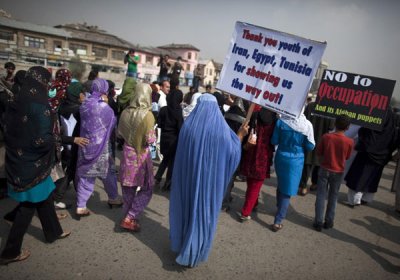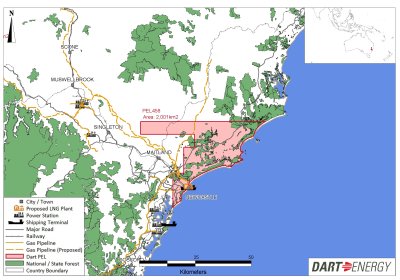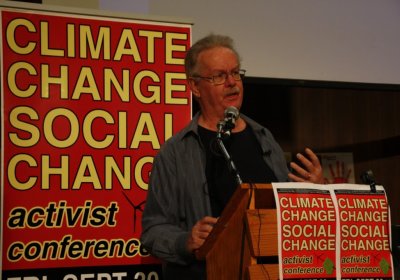There’s no doubt that the explosion of social media, mobile technology and online-organising capabilities have dramatically altered the battle terrain of class struggles today in ways good, bad and ugly.
From the Arab Spring to New York’s ongoing Occupy Wall Street protests, social media and online organising are clearly transforming the way that small, isolated campaigns develop into mass movements in the streets. But how do we separate the genuinely useful aspects of social media from the “data smog” of media hype?
898
A blog of those that support the Occupy Wall Street protests, that began in New York in September and have since spread to hundreds of US cities, hosts a series of personal testimonies from ordinary people across the United States. It indicates the source of the deep anger at the corporate elite that have become rich off their suffering. A selection are published below.
* * *
The Woman Who Shot Mussolini
By Frances Stonor Saunders
Faber and Faber, 2010
375 pages, $32.99 (pb)
The Honourable Violet Gibson was not like the other women of the Anglo-Irish elite when it came to Benito Mussolini, the leader of Italy's fascists.
While Lady Asquith (wife of the former prime minister) was delighted by Mussolini, and Clementine Churchill (wife of the future prime minister) was awestruck by “one of the most wonderful men of our times”, Violet Gibson aimed a revolver at the fascist dictator in Italy in April 1926 and shot him in the nose.
There is a sharp reality disconnect in the Black community.
On the one hand, the Black population continues to support the first African American president, Barack Obama, by more than 90%.
Yet the plight of the Black communities is at its worst condition in three decades. Official unemployment is over 16% ― twice that of whites and iabout 30% for young African Americans.
Black household income is in decline and the lowest of the five major ethnic groups. Poverty is at the highest levels in 30 years.
Entering the darkened space of the Sherman Contemporary Art Foundation that held Vietnamese artist Dinh Q Le’s latest installation, Erasure, which finished on September 10, I imagined myself to be stepping into the psychological space of a disturbed memory.
The brooding political and cultural climate surrounding the issue of refugees in Australia has involved politicians exploiting the sensitive subject in a game of political football.
Crowds burned a US flag in Kabul on October 6 at a rally to mark the 10th anniversary the next day of the US-led invasion and occupation of Afghanistan.
Natacha Atlas, the award-winning electronic-worldbeat artist, has canceled her upcoming show in Israel and will be boycotting the state until the apartheid regime is dismantled.
Just about every passerby stopped at a recent Green Left Weekly stall in Hamilton, Newcastle, to sign a Lock the Gate Alliance petition for a moratorium on coal seam gas (CSG) mining.
All those who stopped were concerned about plans to mine CSG at nearby Fullerton Cove.
September 25 will go down as one of the darkest days in Bolivia since Evo Morales was elected as the country’s first indigenous president almost six years ago.
After more than 40 days of indigenous protesters marching, police officers moved in to repress those opposed to the government’s proposed highway that would run through the Isiboro-Secure National Park and Indigenous Territory (TIPNIS).
The controversial highway has met with both opposition and support from the many indigenous and social organisations that form the Morales government’s support base.
Australia, at least for me, is a paradox. As Dorothy McKellar famously wrote, “I love a sunburnt country, a land of sweeping plains, of rugged mountain ranges and droughts and flooding rains”.
The extremes in our landscape and our weather seem to have been etched into our national psyche as well, which is something I’ve never quite understood.
Ian Angus is editor of climateandcapitalism.com and co-author, with Simon Butler, of the new book Too Many People?. This is his keynote presentation to the recent Climate Change Social Change conference in Melbourne.
Hazara asylum seekers inside Darwin detention centre released the statement below to explain the aims of their recent protest.
* * *
We the Hazara Afghan asylum seekers held a peaceful protest in Darwin detention centre with number of 100 asylum seekers on September 24.
We strongly condemn the act of target killings of Hazaras in Pakistan and Afghanistan and we pass our condolences to those grieved families.
- Previous page
- Page 2
- Next page











